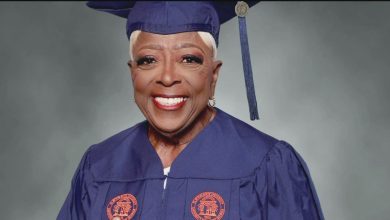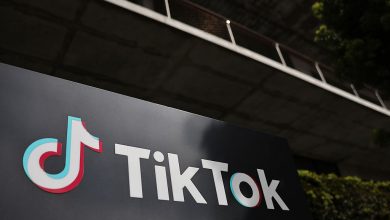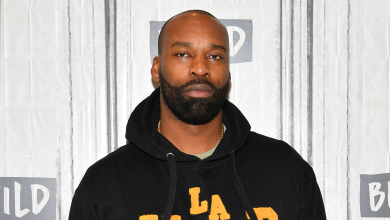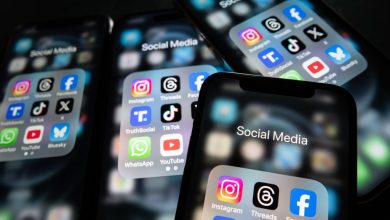Chance The Rapper Shares His Business Mindset And Decision To Become An Independent Artist Came From His Mother, Who Once Owned A Salon
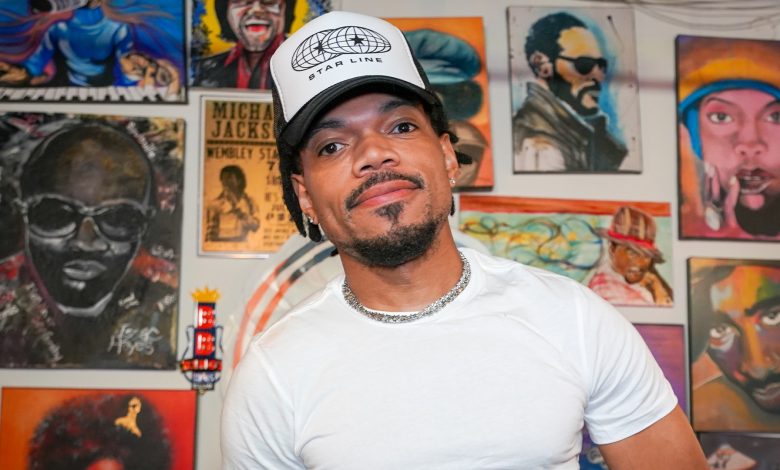

Chance the Rapper comes from a family that understands the importance of self-determination.
Family Influence
During a conversation with AFROTECH™, the Chicago-born rapper — Chancelor Johnathan Bennett — said his mother, Lisa Bennett, informed his business mindset. According to NBC, she once owned a hair salon and barbershop on the city’s South Side called Touches. The community revered the shop, but she sold it after giving birth to Chance.
“The community that she built through it and the pride that not only she had, but other people had in her business and still have to this day, like when I meet people and they’re like, ‘Your mom used to own Touches,’ I’m just proud of that, and that’s what I aspire to be. A person that could be, you know, useful in the community and also proud of something that they own and build,” Chance explained to AFROTECH™.
Looking even further into his past, Chance’s roots in North Carolina were a major influence for the rapper. He recalled picking apples, learning about agriculture, and constantly seeing tobacco fields. In fact, his great-great-grandmother was a sharecropper in a small town who used to sell tobacco to Winston-Salem.
“My great-great-grandmother was sharecropping and eventually bought the property. We have stories on both sides of my family, actually. I love each of them, but, at the end of the day, I think there is a high theme of reclamation and of pride in telling my story, telling the truths of it, still being clever and being artsy. There is like a strong sense of pride and ownership and reclamation and righteous indignation,” Chance expressed.
Going Independent
Building on generations of self-determination, it should come as no surprise that Chance the Rapper has remained an independent artist in the music industry. “No contract, no fine print, no lease, no co-signment,” he rapped on his 2025 album, “STAR LINE.” The New York Post reports that he has even turned down label deals valued at up to $10 million.
“STAR LINE” reflects a “six-year journey of artistic, spiritual, and physical growth,” notes a press release shared with AFROTECH™, created by Adobe Acrobat Studio — an AI powered platform that help creative professionals summarize and organize content, such as PDF files.
Despite the creative fulfillment that comes with independence, Chance admits the journey isn’t without its difficulties. He admitted, “Producing and funding an album is just taxing” and points to a capitalist system.
“The truth is, I’ve just always been independent and been a fair business man, or maybe more than fair, and been in a position to help a lot of people. But also, it’s just the beast of, I guess, capitalism is that you’re consistently fighting to retain what’s yours and also build at the same time,” he acknowledged.
Streaming
With the music industry’s constantly evolving landscape — especially the rise of streaming — things have become even more complicated. Chance said in an interview on “The Joe Budden Podcast,” that he played a role in ushering streaming into the music industry with his 2016 album, “Coloring Book.”
According to Billboard, it was the first streaming-only album to chart on the Billboard 200. In 2017, Chance took home three GRAMMYs tied to the album: Best New Artist, Best Rap Performance, and Best Rap Album. This was made possible by the Recording Academy’s rule change that same year which permitted streaming-only music to be considered for the coveted award, the GRAMMY Awards website reports.
Chance told AFROTECH™ that, while streaming has made music more accessible, artists are often not properly compensated. Snoop Dogg has also shared similar sentiments, claiming he was paid $45,000 for 1 billion streams on Spotify, as AFROTECH™ previously reported.
“When streaming was not popular, or for better word not a regulated thing — when it was Audiomack, DatPiff, YouTube, and SoundCloud days — I was mostly interested in getting past the paywall so people can access my music,” Chance The Rapper explained.
“In streaming, there’s just a lot of inequity and a lot of just unfairness in how everyone gets paid … It’s harder and harder to have your creations be products and not just byproducts of a subscription,” he continued.
“But that’s also across the board. That’s not just music. The film industry is also suffering from it. So I think what many artists are doing is they’re trying to figure out ways to to sell an experience or sell a physical copy around the project,” Chance added.
Writing On The Wall
Chance has followed suit with his new album, STAR LINE, which stands out for more reasons than his lyrics.
As Chance developed the album, he began hosting small listening gatherings called Writings on the Wall, per the “STAR LINE” Adobe Acrobat press release. While fans listened to Chance The Rapper’s new project, each song was accompanied by an art piece — a photo, painting, a video, or other visual — from a pool of artists across the globe, including Brandon Breaux, Yannis Davy Guibinga, Mia Lee, and more.
These sessions allowed fans to share feedback through voice recordings, writing reflections, or speaking directly with Chance and his team. They were hosted in Chicago, Los Angeles, New York, and Accra. Chance told AFROTECH™ that these gatherings were instrumental to his creative process and the early stages of “STAR LINE.”
“The Writings on the Wall, the listening experience, audiovisual experience, was a big deal for me or important for me to do,” Chance acknowledged.
“I know this project for me was so focused on the writings and the word choices and the literary devices and the experience of having a clear stream of thought that’s carefully and intentionally worded. So, I wanted to do that experience to … introduce and solidify that means of communication to my fans. As well as introducing the music early,” he continued.

